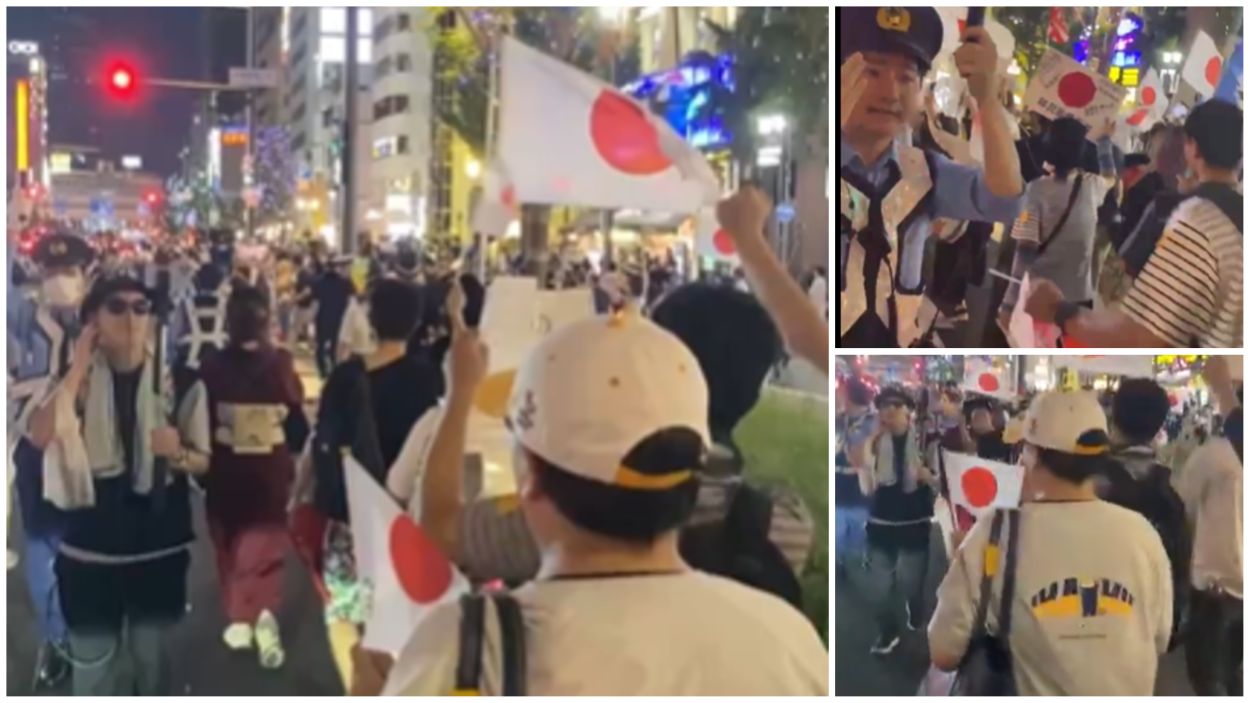On August 30, 2025, thousands of locals marched in Osaka, Japan, calling for an end to immigration, as reported on X by @isfjcutebear. The protests reflect growing anti-immigration sentiment in Japan, fueled by concerns over cultural changes and economic pressures.
The large-scale march in Osaka saw thousands of residents demanding stricter immigration controls. For instance, protesters expressed concerns about job competition and cultural integration, citing the increasing presence of foreign residents, particularly Muslims, in neighbourhoods, per Noahpinion. The demonstration, which drew attention on social media, highlighted tensions in a city known for its welcoming reputation.
🚨BREAKING: Thousands of locals marched in OSAKA yesterday demanding an end to immigration pic.twitter.com/WPGNuA3ItQ
— クマシュン🔆ISFJ (@isfjcutebear) August 31, 2025Context of Japan’s Immigration Debate
Japan’s foreign resident population reached 3.77 million in 2024, an 11% increase from the previous year. This growth, driven by labour shortages and an ageing population, has sparked debates. For example, the right-wing Sanseito party, which gained traction in the 2025 elections, has fueled anti-immigration sentiment with its “Japanese First” campaign, per Reuters. However, Japan’s low crime rate among immigrants, at 1.8 times that of natives, suggests minimal public safety risks, per noahpinion.blog.
Protesters cited economic and cultural concerns. Specifically, some locals fear rising rents due to wealthy foreigners buying property, as noted by a resident of Sakai in The Asahi Shimbun. Others worry about cultural shifts, such as the presence of mosques and Muslim schools. However, experts like Professor Shunsuke Tanabe argue that public views on foreigners remain largely positive, with 60% of Japanese supporting immigration, per a 2024 survey by Waseda University.
Osaka🇯🇵protest to stop massive immigration‼️ pic.twitter.com/0G5oMEtFYM
— ⚜️L.E.P.A (@lepanigeria) August 31, 2025The Japanese government has not officially responded to the protests, but recent policies, such as the revisions to the 2024 immigration law, have faced opposition for tightening deportation rules. Social media reactions were mixed, with some supporting the march and others criticising it as xenophobic. A viral post with 10,000 likes called for “cultural preservation,” while others urged tolerance.
The Osaka protests could influence Japan’s immigration policies, especially as Sanseito gains political ground. However, Japan’s need for foreign workers, with 40% of skilled labour growth from immigrants, may limit drastic changes. The demonstrations also highlight global anti-immigration trends, evident in countries such as the US and Australia. Balancing economic needs with public sentiment remains a challenge.







Immigration is ok sans muslims